Our favorite Hollywood insider invited Free Range International (FRI), the lovely Kanani Fong, to review the film A War. As a reward, she put me in touch with an interview with the producer Tobias Lindholm. I set up on the Baba Deck, started the film, and when it was over, found myself just sitting in stunned silence, trying to figure out why this film had upset me. I emailed Kanani, who emailed the producer, who emailed me the info to watch it again (it’s a one-time password), and again I watched it, slowly, and began to understand what it was all about. This film should be required viewing for every idiot politician in the Western world who thinks it’s a great idea to nation build.
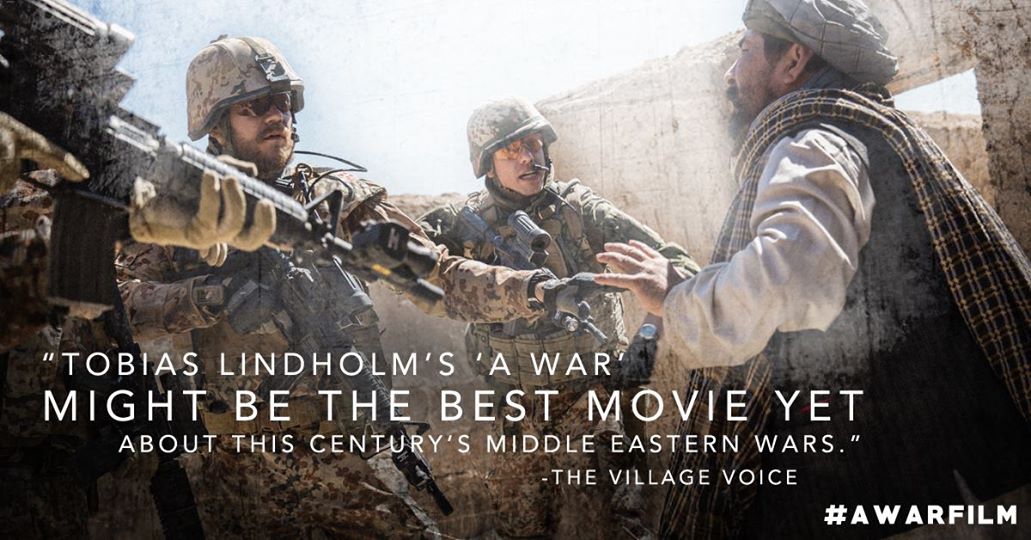
The cinematography, tight battle shots, clean storyline, and understated tone reminded me of another military classic, Breaker Morant. Breaker Morant exploded in popularity worldwide and garnered too many awards to list here. I hope A War will have a similar reception.
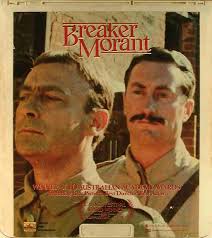
A War follows a Danish infantry company commander as his government prosecutes him over collateral damage he may or may not have inflicted (this is never really established) and the toll it takes on him and his family. That the civilians sitting in judgment of him have no idea of the pressures or realities facing their fellow countrymen on the battle field is an obvious plot line that is handled tactfully. Directed by the talented Tobias Lindholm and staring Pilou Aesbeck (Game of Thrones) with a supporting cast of unreasonably attractive Danish folks, the film sucks you in and never lets go.
The movie is based, in part, on the prosecution of a Danish company commander charged with the illegal killing of 4 men he contends were planting IEDs near a Danish base in the Helmand Province on the night of October 23, 2011. The Staff Judge Advocate dropped the charges when Task Force Helmand (the Brits) could not produce the evidence as promised. I think the issue was the source’s credibility or lack of a clean chain of custody from the source to the prosecutor. Regardless, the case never went to trial, but one can imagine the toll paid by the company commander in question.
The first half of A War introduces the Danish company commander Claus Pederson (played by Pilou Asbæk) and shows why he has been charged with the deaths of civilians. We are introduced to the concept of PID (positive identification) during the exceptionally realistic combat scenes. We see the Danes paying scrupulous attention to their rules of engagement. We watch them allow armed Taliban to move through their area unmolested. When an armed Taliban stops his motorcycle to plant an IED, they plant him, from 500 meters out, with two rounds into the 10-ring. These lads were good infantrymen, patient, talented, and professional.
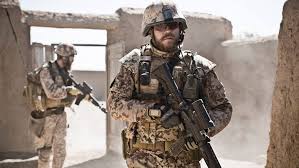
During one of the ensuing patrols all hell breaks loose when the Danes are sucked into a village that turns out to be a complex ambush. To get a medevac flight in to take his wounded out, the CO (Pederson) calls in Tac-Air on one of the adjacent compounds from which he was taking fire. Weeks later, Staff Judge Advocate officers show up with some photos, allegedly from the targeted compound, of a dead woman and children. The company commander is immediately sent home to face trial for the deaths of these civilians.
At this point, the fact that the Taliban fire died off after the compound in question was hit is irrelevant – the issue becomes, did he know exactly who was in that compound when he smoked it, and that, of course, is a question that would be impossible for any human in his position to answer.
As the trial progresses, you want to hate the prosecutor and heap scorn or contempt on the three-judge panel, but that’s impossible. The court officers come off as intelligent, reasonable people doing their jobs to the best of their abilities. They wear sensible earth-toned natural fibers and ask reasonable questions. They are the kind of folks you’d like to hang out with in a fine restaurant, talking about art or culture for an evening.
What makes this movie work is the character of Claus Pederson. He is sending an important message aimed directly at veterans from both Iraq and Afghanistan. This was the producer’s intent, and he told me the idea for the film came after he read an article quoting a Danish infantry officer heading to Afghanistan for his third deployment. He was not afraid of dying at the hands of the Taliban, but terrified, given the stringent rules of engagement (ROE) of being prosecuted by the government when he returned.
As we watch Pederson dealing with his court martial, it is impossible to miss that he demonstrates the only helpful strategies available to combat veterans when returning home. You recognize that Pederson has the same dignified silence over the weight he carries that we saw in our WW II Veterans. Pederson is teaching essential lessons, the first of which is simple to say but tough to understand. When you get home from the wars, you’re alone and must deal with that. Even when surrounded by friends and family, you’re alone, and that won’t change until enough time has passed for the memories to fade.
This is revealed in a subtle way, which is why it comes across so powerfully. There are many times when Pederson is there but not there: when he slips out at night to stare at the stars and smoke a cigarette, or when he tracks a helicopter flying through the night skies. The moments are fleeting, and the camera doesn’t linger, but you know what he’s thinking, and for those of us who were there, we know we did the same thing when we first came home.
Then we witness another essential truth that Pederson unmasked: nobody cares or understands what happened to you. We see this in the reaction of Pederson’s wife when she learns of the dead children, the way the officers of the court remain unmoved by the detailed description of the desperate situation in which Pederson had to make instant decisions. They clearly don’t understand what he’s trying to tell them nor do they give a damn. Their concern remains only the concept of PID, not the reality that PID could never be established given the situation on the ground.
For the OIF/OEF combat vet, most people in your life will never understand, nor do they care about what you did during your rotation. Many are uncomfortable around you because you saw the elephant. They believe that seeing the elephant results in lifelong psychological problems because that’s what Hollywood tells them. It’s not true, but so often in America today, perception becomes reality when our media and Hollywood reinforce it.
The third, and by far most crucial lesson Pederson reveals is that every problem you are now facing was caused by decisions you made. Period. Nobody else is responsible, nobody else is to blame, and nobody else can fix whatever negative situation you are in. Your decisions got you where you are today; the only way out is on you.
Pederson is calm and collected while under enemy fire in Afghanistan and friendly fire in Copenhagen. He makes no apologies and holds no grudges even when his XO testifies honestly, yet damning. It is clear he is conflicted by his experience and feels responsible for the deaths of civilians, but not the woman and children he is being prosecuted for, but rather a family that had sought protection inside his Combat Outpost; something he could never allow.
This scene has played out many times during our years of fighting in Afghanistan. I talked with a Marine who had been at a Combat Outpost (COP) that took in a teenage girl who had been beaten and was going to be killed by her brothers for talking to another boy on the phone without their permission. The Marines took the girl in and reported this up the chain. It went to the embassy for a decision, and they decided to kick her out of the COP. The girl was released, and we can assume (but don’t know for sure) suffered a hideous death. The men who took her in and then were forced to kick her out have to live with that. I know the ambassador and his staff were no more thrilled about making this decision than I would have been, but let’s be honest; it was the right call in the grand scheme of things. I’d rather we stick to principle, but taking that girl in could have (I believe would have) resulted in a province-wide revolt. War forces men (and women) to make decisions right for tactical and strategic reasons, but wrong for the soul.
Back to the review:
At no time does Pederson bring up the fact that he was given a mission (the protection of local civilians from the Taliban) that he could never accomplish. Virtually every Afghan in the Helmand Province thought the foreigners were propping up an illegitimate government in Kabul. Nobody in that Province knew what 9/11 was, who al-Qaeda was, or why the foreigners were in their country. What they did know was that the government in Kabul was corrupt and the foreigners were responsible for standing that government up.
If you’re a vet, friend, or family member of an OIF or OEF vet, you must watch A War. Claus Pederson will show you what it was like to fight in Afghanistan. More importantly, for vets and their families, he will show you the way forward when you return.
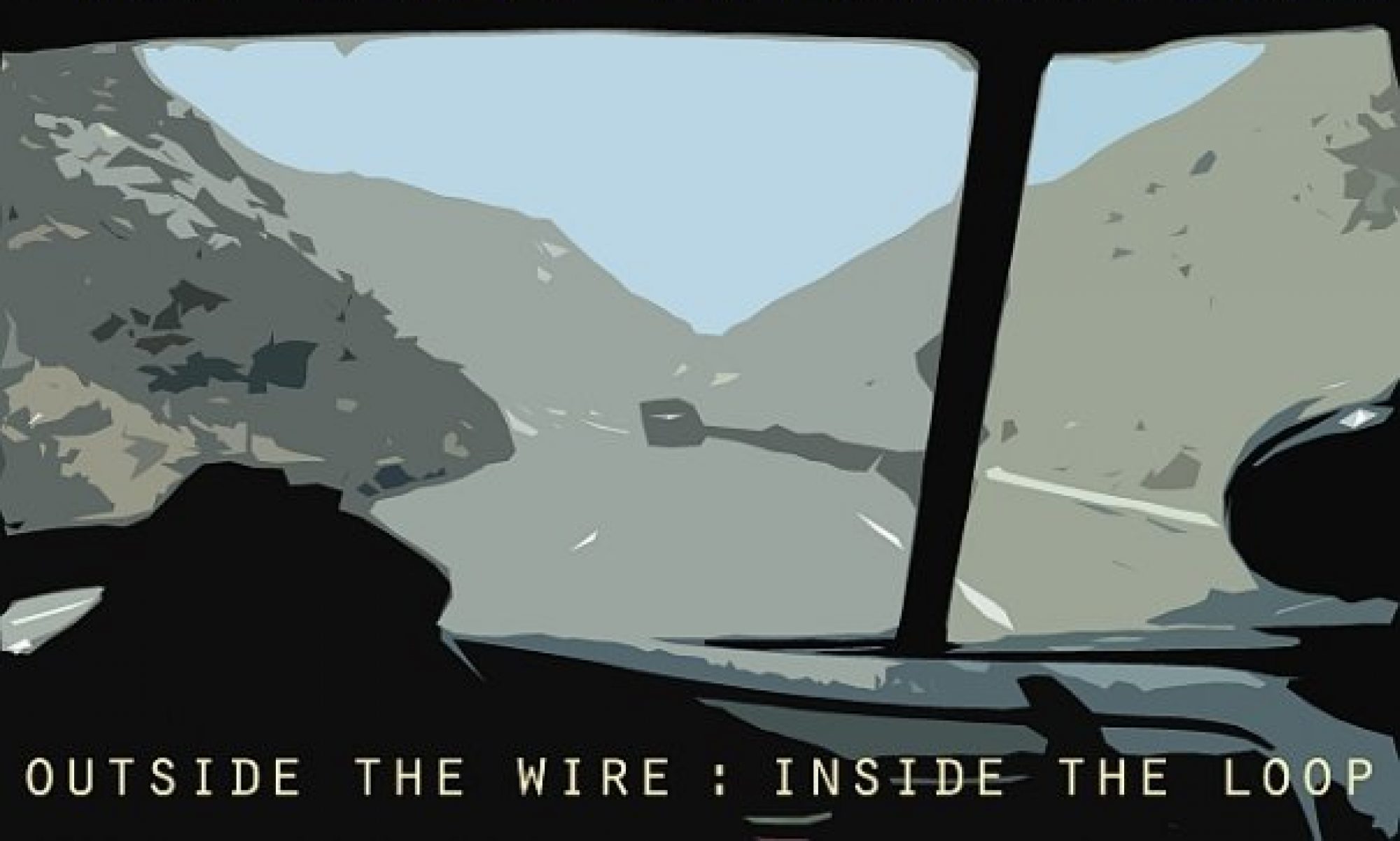
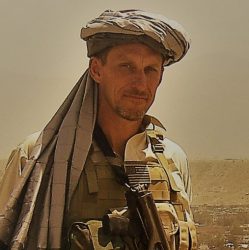

Good to see you posting again, brother.
The modern, all volunteer dilemma. 1% may take up arms in defense of their country and no one understands what being in a war zone like Iraq or Somalia or Afghanistan is like.
Go to Helmand where everyone is a potential enemy, endure the IED’s and friends killed or wounded, try to figure out the sloppiest and most handcuffing ROE’s and then come home to a country that doesn’t care.
PTSD isn’t just from the things you’ve seen or had to to. It is from the reaction of many of those around you.The opposite of love is not hate, but indifference.
Hey Matt thanks for the comment – I appreciate it. And the Helmand….that fucking place…..I like Afghanistan and I’ve been to every Province but Helmand, Uruzgon and Khost….those places were evil. Even Kunar had some good folks in it but the Helmand. Not a happy place.
Thank you. Good to hear from you again.
Thanks Robert – not sure how much writing I’ll be doing but it’s encouraging to hear from FRI followers. Cheers mate
Hey Tim,
howzit going mate. Type this into youtube “Questions from Oruzgan” still unresolved and no fucks given. No accountability and everyone hoping it’ll just go away. Enjoy bro
I haven’t typed it in yet but think I know what your talking about …..I’m guessing Extortion 17 and I’m going to check now….shit mate your kidding me. This is going be just like the movie because the whole Province was against you guys, know how to manipulate the media and know what a payday is. I’m so damn pissed I forgot to delete my Afghan expert guess about the SEALs. There is no way you can establish now what happened then and that statement would have been as true 48 hours after the incident as it is now.
we should never have tried to occupy Afghanistan
I’ve said that myself John….it’s a great country with good people but knowing that is lost to us now.
Tim,
Great catch and made into a thread on Small Wars Journal: http://council.smallwarsjournal.com/showthread.php?t=23615
For those interested in the Danes in Helmand there is an excellent 2010 documentary ‘Armadillo’, that too caused domestic controversy: https://en.wikipedia.org/wiki/Armadillo_%28film%29
Hey David thank you for that – I really appreciate it. Not sure how much more writing I’ll be doing – if the price of oil doesn’t come up above 50 bucks I may be doing a lot. I’m in Corpus Christi Texas now and joined the oil biz at about the exact wrong time to get into it damnit. And I did see Armadillo – another good solid film but I really liked A War and hope you get to see it.
Great to hear from you again. You always hit the nail squarely.
thanks Alan and I think I’m going to start doing this a little more often